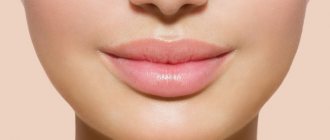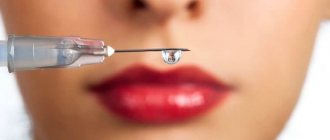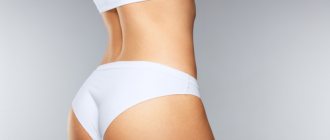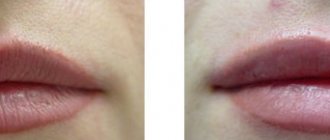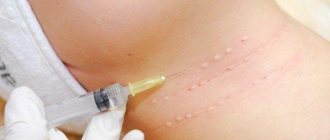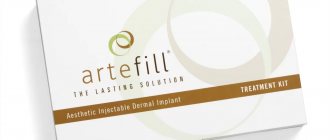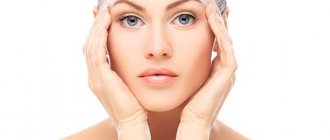“I believe it or not”: what cosmetologists think about creams and Botox
Cosmetologist Tatyana Al Sabunchi told Yana Zubtsova which measures to save youth and get rid of “imperfections” she believes in, and which she doesn’t really believe in.
An honest, competent cosmetologist is as rare as a Frenchman who doesn’t like wine. Tatyana Al Sabunchi - as far as I know and understand her - is one of those. Despite this - or precisely because of this? — it’s almost impossible to make an appointment with her, even for me. Which, of course, is a shame. And after this text, it will probably become completely impossible. Which will be even more offensive.
But, apparently, the journalist in me is more alive and stronger than the patient :)
Tatyana is a candidate of medical sciences and the chief physician at the Tori clinic, and the idea for this post grew out of a comment from our reader, where she wrote that her doctor, Al Sabunchi, denies the need for moisturizing creams. I don’t know the reader, but I’ve known Tatyana for a long time. So I decided to find out why she doesn’t like these creams. And at the same time, what other common theories does he not believe in?
If I meet more cosmetologists on my way who are ready to crush some beauty foundations, perhaps this will even result in a series of “Believe it or not believe it” posts.
In the meantime, over to Tatyana Al Sabunchi.
I don’t believe in the total and universal need to use moisturizers on an ongoing basis.
Let me emphasize: I’m talking now about normal healthy skin. Not about skin that has been suffering from dermatitis since birth, not about those cases when it itself cannot produce hyaluronic acid in the required quantities and needs help. I'm talking about the norm. And for such normal skin, using moisturizer every day is unnecessary and sometimes harmful. I'll give you a few metaphors, it will be clearer. For example, a child learns to write by tracing the dotted letters according to the rules. Somehow it doesn't work out very well. You take the pen from him and say: “I’ll do it for you, we’re in a hurry, I don’t have time to wait!” And so on day after day. Will he learn to write? No, he won't learn. Now imagine an adult. He can write. But he is not allowed to do this. He is suspended from this activity. He doesn’t write for a day, a week, a year... And gradually he forgets how to hold a pen. Or imagine: you are a fisherman. But I have been giving you 3 kilos of fish every day for 15 years. And you, of course, don’t go on any fishing. Why?.. And one fine day, instead of fish, I give you a fishing rod. You just need to attach a hook, fishing line and everything else to it. How quickly can you remember how to do this?..
It's a law: a skill that doesn't work atrophies. Organ too.
Now let's move on to the skin.
Do you know what we get if a woman with healthy, normal skin begins to fervently use moisturizing creams, serums and masks? We get dry, dehydrated skin, which vitally depends on all this artillery, because it itself can no longer do anything.
Another thing is how often does this “normal healthy skin” occur in nature? But here I will give another example. What percentage of people you know use moisturizer? Probably, given the specifics of this resource, about 99%? And what percentage of these 99% are satisfied with their skin - when they DO NOT use a cream or mask? So she washed her face in the morning - and she doesn’t need to apply any cream or serum, and is that okay with her? I think a little. As a result, we have the following paradigm: 100% of women use the cream, and 98% of them are still unhappy. That is, we can conclude that creams do not help them in a prolonged sense. Now let's remember the men. Do many men use moisturizers? Well, obviously less. Let's say 20% of the total (and this would also be a stretch). And which of them is dissatisfied with their skin?.. Much less. And it's not a matter of personal assessment. If we take a man and a woman of the same age, the woman's skin will be more prone to dryness, more dehydrated, more sensitive. I’m telling you this as a cosmetologist. Although, in general, a man’s skin should be worse - if only because he shaves every day, plus another hormonal background that provokes the appearance of enlarged pores, inflammatory elements, and so on. But, since he uses creams much less, she has not forgotten how to work on her own. And you try to scrape a woman’s skin with a razor for at least a month, a week, and then polish it with alcohol lotion - it will take another month to recover.
Women love to pamper and cherish themselves so much that they end up doing harm.
A healthy person does not need medications. Do you have flu, pneumonia, otitis media? Another thing. You have been diagnosed and you take medication for a week, two weeks, a month. And then you finish. You have recovered. You got the result, this is the final point.
Healthy skin doesn't need creams either. If the skin is dry or oily, there is a problem, which means it needs to be treated. You take a cream, super-expensive or super-cheap - it doesn’t matter. This is a treatment. You use it for a month, three months, six months, a year - as long as it takes to achieve results. Once this result is achieved, the treatment must be discontinued.
But in fact, this almost never happens. You apply - you feel good - the skin feels comfortable - the next day you apply again - and so on ad infinitum.
I see a lot of patients with dry skin that I suspect was once normal. I ask: “Do you use any creams?” - “Of course, doctor! Every day!" Well -?.. And I often see patients with oily skin, which could become normal with proper treatment. And for others - yes, there are traces of post-acne, but now the skin is normal.
In general, the concept of “hydration” is a marketing concept. “Anti-aging” on the can is also a marketing concept. What do moisturizers with hyaluronic acid, for example, do? They create a film on the surface of the skin. Moisture does not evaporate. The skin feels that everything is normal and stops its own production of hyaluronic acid. Why does she need more? This happens for a day, two, three, and the skin gets used to having everything done for it. A cream that is called “moisturizing”, if you think about it, should be called “drying”. True, it is not clear who would have bought it then.
Please understand correctly: I am not against such means at all. I am categorically against their constant, everyday use. Once every one to two weeks, a moisturizing mask is approx. Serums with hyaluronic acid after peelings, laser resurfacing, heavy sun exposure are great. When the skin is injured, it itself is unable to produce hyaluronic acid. Again, like medicine: I took a course and that was enough.
Retinol and peptides in creams – I’m all for it. This stimulates the skin. They give her something from which she then begins to build herself. Vitamin A is necessary for our cells. Vitamin C is also necessary. Microelements, acids - approx. Oils are also possible, but be careful. Talk to a competent hairdresser, he will confirm: you should not use oil every day, it leads to brittle hair. The same applies to the face: oils lead to dryness and irritation every day. And occasionally - yes, they work great.
In general, I am in favor of stimulating our own reserves rather than replacing them.
Ideal care, from my point of view, looks like this: cleansing both morning and evening; then, since almost any cleansing involves the presence of alkaline substances, a tonic is required that restores the pH balance, that is, with a small acid content; and then - a cream with vitamins that suits you. (What is suitable is never known in advance, for some one suits one, and it is expensive, for others - another, and inexpensive, and then they fight to the death: some say “my skin does not accept anything except La Mer and La Prairie, others - "try the Cheburashka cream. Who is right? Both are right. If your skin reacts normally, does not dry out, does not redden, does not become irritated, does not flake, then this is your cream, and you are right. Listen to your skin. It will tell you a lot and will show) Serums - in courses. Not always. The indicator that you have normal skin is simple: you can forget to apply cream and will not feel discomfort. You can put nothing on your face at all a couple of times a week at night, and you will be fine.
So yes, I am against the theory “everyone always needs moisturizer from their youth!” Not everyone. Not since my youth. Not always. Perhaps your skin will work on its own - and be beautiful.
I don’t believe that somewhere there is a strict list of procedures that must be done “from 25, from 35, from 45 years old.”
Magazines love to write such lists, journalists love to ask this question. But I am for everything to be done not according to the passport, but out of necessity. It is believed that the skin begins to age at the age of 25. (Although there is data from American scientists who claim that she begins to do this from the age of 10, which, of course, sounds catastrophically unpleasant, but nevertheless.) Yes, there are some average parameters, and, according to them, at 28-30 years old It would be good to go to a cosmetologist. But this does not mean that “it’s time to take drugs” or do something like that immediately. Maybe it's not time yet. And if a girl has been sunbathing “at the barbecue” since she was 18 years old, then at 20 it may be “time” for her: 80% of our wrinkles are due to photoaging, and only the remaining 20% are due to genes and age.
So, let a good specialist look at you at 28-30 years old. If it turns out that the skin begins to show signs of dehydration and decreased tone, it is possible that it is worth trying some procedures. But, if possible, do not get addicted. But at this age, it is enough to slightly correct the nasolabial folds, and this will be both an excellent prevention and treatment. And perhaps you will never have problems with your nasolabial lips. And when a person comes for the first time at 59 years old, and he has wrinkles on the forehead, and nasolabial folds, and ptosis, and rosacea, and wants to get rid of everything, and preferably in one procedure - no, that doesn’t happen.
In general, the situation can be played back by a maximum of 1-2 points.
Here's a look at these stages of change. You will never be transported from the far right point to the far left. For one, maybe one and a half - yes, it's possible.
Therefore, decide for yourself when to visit a cosmetologist. Age is not an indication. Look in the mirror, not your passport.
I don’t believe that the patient can prescribe the procedure for himself
Yes, clinics advertise the methods and devices they purchase. And they don’t like to advertise specific doctors. This is understandable: the doctor can leave, but the device will remain. But people read about the procedures, see before and after photos and decide that this is what they need. And then they are unhappy if the procedure he read about in a magazine does not work. And they are unhappy if the doctor, instead of immediately taking up the syringe, advises something else. The doctor begins to be suspected of being a scam. How to deal with this? Don't know. I found one method for myself. I conduct all initial consultations with a mirror. And I ask the patient to show what he doesn’t like about himself, what he would like to get rid of. She shows: “This, this and this.” I say: “Then this, this and this can help you.” She says, “But I came for the BBL procedure!” No, you didn't come for a procedure. You have come for a consultation. If a person understands and hears me, we will have a common history. If he doesn’t understand, he will find another doctor. Procedures that are popular on the Internet are not for me. Advertising drugs on TV is a disaster.
I don’t believe in quick, happy relief from pigmentation, stretch marks and cellulite once and for all
These are all complex problems that require very careful and slow intervention. Do peelings and lasers get rid of pigment? Yes, but they injure the skin, and injury provokes its appearance. If the patient is willing to spend time and money and understands that the process will be lengthy, I am also ready to work on it. If he thinks that I am offering him four procedures instead of one, on which he could “shy away”, only out of a thirst to get rich immediately, we will not work together.
Stretch marks are very difficult to treat. If you can not give a damn about them and live with them, it’s better to spit and live.
Cellulite is a whole complex of problems; it is impossible to achieve an ideal result. The fight requires fanaticism: only proper nutrition, only sports, once a week massages, procedures, wraps. You will see the effect. But relax a little - cellulite will come out again. All the promises to “get rid of it immediately, in one session, forever” - I don’t believe in them. And don't believe it.
I don't believe that there are any "universal" methods
It seems that the most universal and proven method of combating facial wrinkles is Botox. Xeomin injections (a drug similar to Botox) were the first procedure that I did for myself, believing in it, and since then I have been doing it every six months, like clockwork. But this morning I had a patient at my appointment who came “for Botox.” She has such atypical wrinkles, right above her eyebrows. If we inject there, we are guaranteed to get ptosis, and severe one. If you inject a little higher, it will be strange: on top everything is smooth, below there are wrinkles. I explained everything to her in detail: in her case, Botox is contraindicated. What did I advise her? Control your facial expressions yourself. Unfortunately, nothing more can be done here.
I don’t believe in leaving micellar water on
The vast majority of micellar bottles say “does not require rinsing.” But I insist: it must be washed off, not with water, but with foam or milk. Everyone seems to already know the principle of action of micellar water? Micelles that dissolve and capture makeup, dirt, sebum. Well, where does it all go then? If we don’t wash them off, they remain on the skin in one form or another. Let's imagine this picture as if under a microscope. So they dissolved everything. Captured. They hid. Where are they hiding? Yes, on your face.
Now tell me: why does the rinsing program in any washing machine take longer than the washing program itself?.. Simply because everything needs to be washed off.
Why do brands either hush up this fact or openly claim that their micellar water does not require rinsing?
I think marketing. Many people are lazy, some people are lazy at least sometimes. Everyone wants a simple and quick solution, and so that their conscience does not torment them. I was so tired, so tired, but I wiped my face with micellar water, and good job. Moreover, the skin is then so smooth and pleasant. Modern micellar products give this effect. Why else crawl over it with some kind of foam?!
I'll upset you: it's better to eat. And then wipe it with tonic. Only sulfates truly cleanse the skin. And only the tonic then normalizes the pH.
But there is also good news. All this will take about 2 minutes longer. And the skin will thank you later.
PS. If you do decide to make an appointment with Tatiana Al Sabuchi at the Tori Clinic, don't be surprised if they offer you an appointment in early June. This is not personal revenge on you, this is normal. And you will compete with me :)
P.S.S. Here is Tatiana’s personal professional website, where you can look at her work and even ask a question. She also has a very interesting Instagram, she manages it herself and does not photoshop the “before” and “after” photos, but always asks the patients’ permission before posting a picture. Explains clearly and at times funny. I like it, despite the fact that I’ve generally fallen out of love with Insta lately. Tatyana's account is @al_sabunchi.
